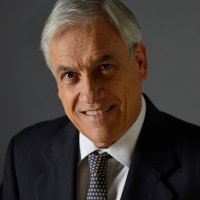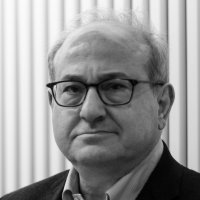The Challenges for Sustainable Economic Growth in Chile and the Region
The Wilson Center hosted the Honorable Sebastián Piñera, in conversation with Eric L. Olson, Deputy Director of Wilson Center's Latin American Program, and Michael Shifter, President of the Inter-American Dialogue, regarding the challenges he foresees for sustainable economic growth in Chile and the Andes region of South America.
Sebastián Piñera Echenique was President of Chile from 2010 to 2014. He is currently the frontrunner in Chile’s upcoming presidential election, to be held on November 19, 2017. Piñera is supported by a coalition of conservative and center-right political parties, called Chile Vamos. Before becoming president, he was a successful entrepreneur and businessman with a broad portfolio of investments in banking, media, airlines, and sports. He was the first center-right candidate to win the presidency since Chile’s return to democracy.
Key Quotes
“Argentina and Brazil are moving from the Mercosur ideology to the Pacific Alliance model of development, and that is changing the mood in Latin America.”
“[At some point], Latin America was able to grow much faster than the world. Now, it’s just the opposite, and that’s something that we’ll have to change – because it’s not the design of God or something that is a fatality. It’s basically because we haven’t been able to do things as we should have done. But there are many significant political changes in Latin America that are bringing winds of hope.”
“First of all, we have to [have] a Copernican revolution [in Latin America] in terms of the quality of education.”
“I think that the fact that President Trump decided not to continue with the TPP has given China a huge opportunity to increase all its influence in the Asia-Pacific area. So, I think that China will become a stronger player, not only in economic terms, but also in terms of investment and in terms of influence in Latin America – which is already happening.”
“What we have now in Venezuela is a full and plain dictatorship… The most difficult thing is that, politically, they are confronted with no way out.”
“Our concern, our challenge, our mission is not only economic growth. It is much more than that. It is to improve quality of life – and for that, you have to improve the quality of our democracy, our institutions and to combat corruption in a much stronger way. We have changed our legislation and now Chile is becoming one of the most transparent countries in the world. I hope that will become the antidote to corruption, because at the end of the day, there is no better police than sunlight. There is no better disinfectant than the public light."
“Some people talk a lot about poverty and inequality, but they don’t do much. I think that the best way to combat poverty and inequality is using the two blades of the system. The first one is to try to attack the causes, which is basically bad quality of education and lack of opportunity to work… Of course, that will take time, so in the meantime, you have to apply social policies.”
“Mr. Trump’s approach, ‘America first’ – of course, every president should say that. But the question is, to close the American economy – is that the best way to put America first? I think that he’s wrong. I think there’s no contradiction between being a president who wants the best for his country and, at the same time, being a president who wants to open up the economy.”
Introduction

Keynote Speaker

Panelists

Director of Policy and Strategic Initiatives, Seattle International Foundation

Hosted By

Latin America Program
The Wilson Center’s prestigious Latin America Program provides non-partisan expertise to a broad community of decision makers in the United States and Latin America on critical policy issues facing the Hemisphere. The Program provides insightful and actionable research for policymakers, private sector leaders, journalists, and public intellectuals in the United States and Latin America. To bridge the gap between scholarship and policy action, it fosters new inquiry, sponsors high-level public and private meetings among multiple stakeholders, and explores policy options to improve outcomes for citizens throughout the Americas. Drawing on the Wilson Center’s strength as the nation’s key non-partisan policy forum, the Program serves as a trusted source of analysis and a vital point of contact between the worlds of scholarship and action. Read more
